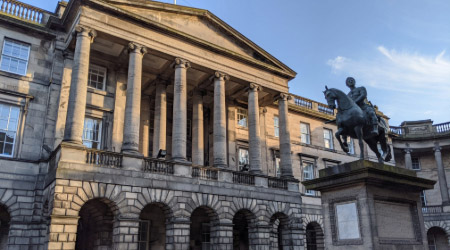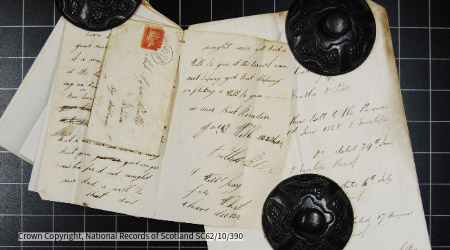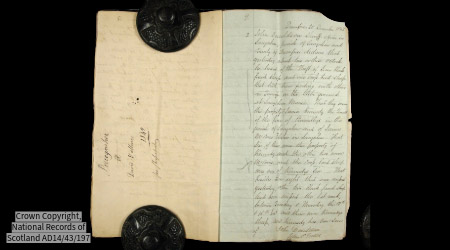Scottish Indexes Conference Speakers Past and Present
Each of our conference speakers has their own biography on this page. Choose a name below to learn more about their work, explore their presentations, and follow links to their websites. If you would like to join us at our next event, you will find full details on the Scottish Indexes Conference page.
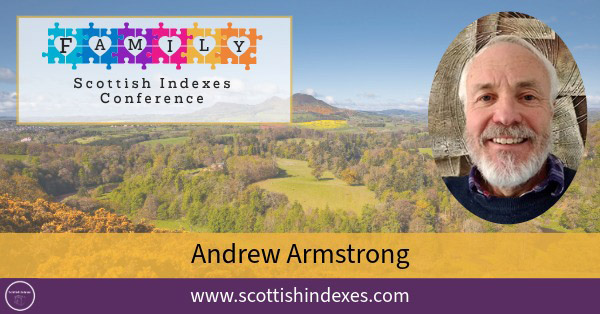
Andrew Armstrong, Genealogist
Website: relativelyscottish.com
After a career in computing and electronics, Andrew became a professional genealogist in 2015. He has a strong association with the south of Scotland, having been born in Dumfries and chosen to live in Kelso in the Scottish Borders for the last 20 years. Not surprisingly, Andrew takes a keen interest in family history puzzles across the Scottish Borders and Dumfries & Galloway.
Andrew has a Postgraduate Diploma in Genealogical, Palaeographic and Heraldic Studies from the University of Strathclyde. He has participated in Scottish Indexes Conferences since they began in 2020.
Presentations
31 January 2026
'Taking The High Road'
As genealogists we can often build a picture of our law-breaking ancestors from their misdeeds and the records kept by the authorities. But what if they're so successful that the law never catches up with them? Andrew looks at the evidence that a cattle droving family were involved in the developing illicit whisky trade in the 18th century around Loch Lomond. This study draws on OPRs, archaeological evidence and holdings at the National Records of Scotland including property records.
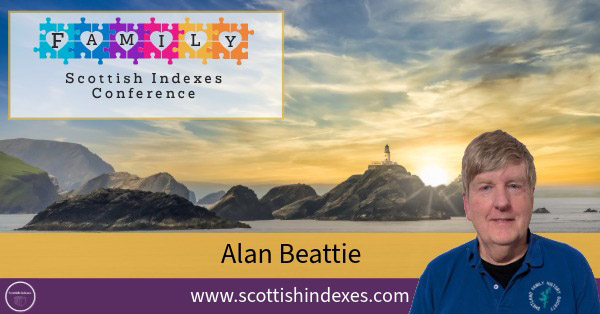
Alan Beattie, Chair of the Shetland Family History Society
Website: www.shetland-fhs.org.uk
Presentations
28 February 2026
'Breaking Brick Walls: How local Family History Societies can help'
Bigger is not always better when it comes to breaking brick walls in our research. A small local Family History Society (FHS) may have both the expert advice and records that you require. Alan Beattie is chair of the Shetland FHS, so most of the examples are from Shetland, but the talk is general and you will be able to transfer the ideas to any area in Scotland.
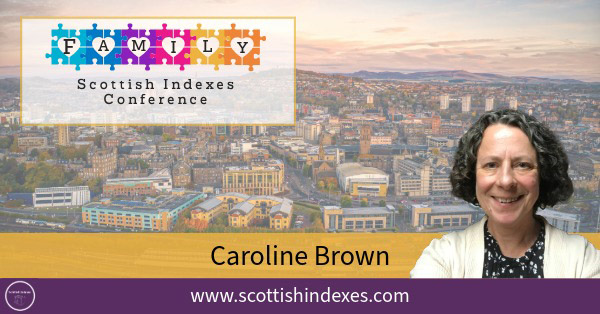
Caroline Brown, University Archivist and an Assistant Director in the Library Academic and Cultural Services at the University of Dundee
Website: www.dundee.ac.uk/archives
Caroline Brown is the University Archivist and an Assistant Director in the Library Academic and Cultural Services at the University of Dundee with responsibility for collections and resources. She was previously the lead for the University's Archives and Family History programmes and is a strong advocate for the importance of archives and the stories they can tell for today's society.
Presentations
22 November 2025
'Weaving the threads of time: exploring the lives of Dundee textile workers'
Dundee was once the jute capital of the world; at one point around half of the city's workforce were employed in the jute and related industries, the majority of whom were women. Textile manufacturing had a huge impact on Dundee and its inhabitants, and its legacy can be felt in the city today. This talk explores that impact and looks at what we can learn about the lives of the men, women and children who were employed in Dundee's many factories.
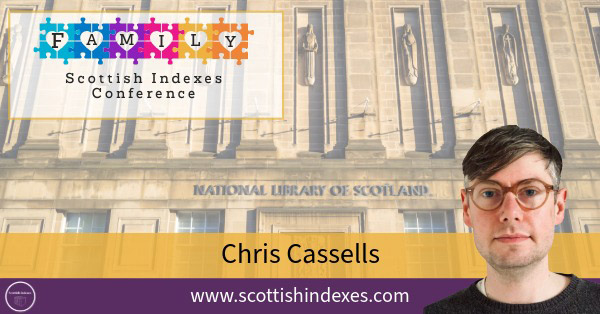
Chris Cassells, Head of Archives and Manuscript Collections at the National Library of Scotland
Website: www.nls.uk
Chris Cassells is the Head of Archives and Manuscript Collections at the National Library of Scotland, a position he has held since 2021. He qualified as an archivist in 2011, and earlier in his career worked with business, local authority and university archives. He holds a PhD in Information Studies from the University of Glasgow, is a trustee of the Scottish Council on Archives and sits on the editorial boards of Scottish Archives and Business and Industrial History.
Presentations
28 February 2026
'Introducing the Archives and Manuscripts of the National Library of Scotland'
The National Library of Scotland holds one of the country's largest collection of archives and manuscripts, dating from the 9th century to the present day. This presentation provides a broad overview of these collections before focussing on those collections most fertile for genealogical research.
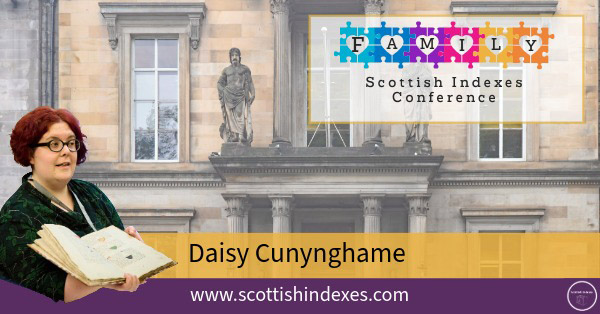
Daisy Cunynghame, Heritage Manager and Librarian for the Royal College of Physicians of Edinburgh
Website: www.rcpe.ac.uk
Daisy Cunynghame completed an MA in Modern History at the University of St Andrews and a Higher Diploma in Archival Studies at University College Dublin. She is the Heritage Manager and Librarian for the Royal College of Physicians of Edinburgh. She was awarded her PhD by the University of Edinburgh in 2020. The focus of this work was 'The Roles of the Edinburgh, Kelso, and Newcastle Dispensaries in Charitable Relief, 1776-1810'. Her research investigates public health initiatives in the late eighteenth and early nineteenth centuries in Scotland and the north of England, with a particular focus on the patient experience within the dispensary system.
Presentations
31 January 2026
'The Edinburgh Public Dispensary, Patients and Doctors'
In this talk Daisy shares the Royal College of Physicians of Edinburgh's new digital resource, The People's Dispensary. At its core, The People's Dispensary features a digitised and transcribed collection of over 10,000 pages of 18th century patient case notes of the Edinburgh Public Dispensary from its foundation in 1776. Located in Edinburgh's Old Town, it provided free diagnosis and medicines to the city's sick. Users of the website are able to search these digitised and transcribed records which feature fascinating details about the diseases, treatments and experiences of poor patients in 1700s Edinburgh. Genealogical researchers will be able to use this resource to uncover the stories of both patients and practitioners.
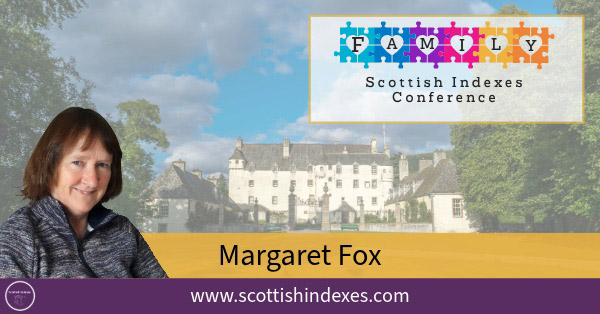
Margaret Fox, Archivist at Traquair House
Website: www.traquair.co.uk/history-of-traquair
Margaret holds an M.A. (Hons.) degree in History from Edinburgh University and is a professional archivist. For many years she has looked after the archives at Traquair House, Scotland's oldest inhabited house. She worked for twelve years in the National Records of Scotland where she immersed herself in the records of the Kirk (Church of Scotland) and the High Court of Justiciary, and in wills and testaments. She now enjoys promoting these records, and also Traquair's fascinating archival heritage, at local and family history societies and at online genealogy conferences.
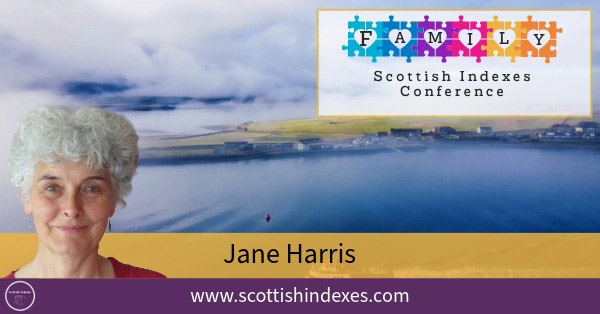
Jane Harris, Retired Genealogist
Website: www.jgsgb.org.uk
After a varied career in teaching, information management, university student services and projects, Jane Harris was a professional genealogist for around fourteen years, specialising in Scottish family history. She holds a postgraduate diploma in Genealogical Studies from the University of Strathclyde. Her interest in family history goes back many years, nourished by roots which are mainly in Orkney, where she was born and grew up, with some Caithness. She now lives just north of Inverness, in the Highlands, and has a one-place study for the North Walls and Brims areas of Hoy, Orkney. With many ancestors who were crofters her topic this time is Crofter ancestors and the Crofters Commission records.
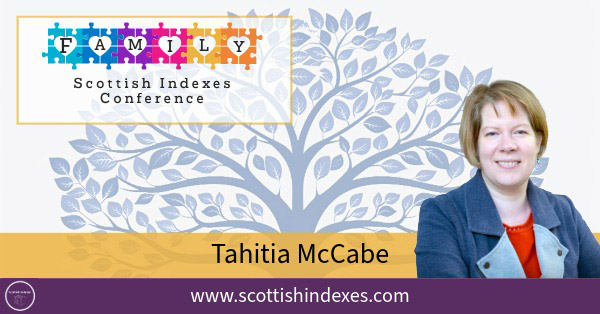
Tahitia McCabe, Head of the Strathclyde Institute for Genealogical Studies
Website: www.strath.ac.uk/studywithus/centreforlifelonglearning/genealogy
Tahitia is the Head of the Strathclyde Institute for Genealogical Studies based at the University of Strathclyde in Glasgow, Scotland. A former librarian and costume designer, she now loves to help students learn about history through their families' experiences. In her spare time, she's working on a PhD researching American residents in Scotland during the late 1900s while her day job is full of planning events, facilitating genealogy communities and supporting tutors and students.
Presentations
31 January 2026
'How did my Scottish ancestors get married?'
This session explores, from a genealogist's perspective: the different historical forms of Scottish marriage; their legality and validity and whether this might impact on whether any trace of a marriage can be found. Scotland had distinctive marriage practices based on principles of mutual consent rather than religious ceremony. Both 'regular' and 'irregular' marriages were recognized by the law. Consideration is given to how irregular marriages were recorded once civil registration began in 1855 and the long road to the creation of civil marriage, which became possible in 1939 and allowed a ceremony in a registrar's office. Sources for marriage records are considered, both online and in physical archives. Tips and tricks for finding these and understanding the records are shared.
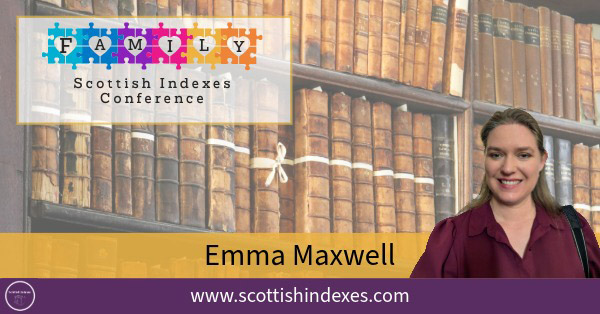
Emma Maxwell, Genealogist
Website: scottishindexes.com
Emma Maxwell is a professional genealogist and co-founder of Scottish Indexes. Since 2001, she and her husband, Graham Maxwell, have painstakingly indexed thousands of historic Scottish family history records, opening them up to researchers worldwide.
Emma serves as secretary of the Scottish Genealogy Network and sits on the National Records of Scotland customer advisory panel.
In 2020, Emma and Graham launched the Scottish Indexes Conference series, which has grown into a trusted international forum for family historians. Through her work, she reveals the human stories hidden in archival records, bringing Scotland's past vividly to life.
Emma has appeared on BBC's Who Do You Think You Are? and is a regular speaker at major genealogy conferences, where she shares practical methods and insights to make Scottish family history accessible and inspiring.
Presentations
28 February 2026
'Using Scottish Indexes: Scotland'’s Criminal Database'
With over 950,000 entries from seven different types of historical documents, Scotland's Criminal Database is an important resource when you are tracing your family history. In this presentation, Emma Maxwell, genealogist and co-founder of Scottish Indexes will help you use this to the full. Emma will explain what the different document types are, when each should be consulted and what information the original documents will tell you. Emma will also share hints and tips of how to use Scotland's Criminal Database.
31 January 2026
'Locating Scottish Burial Records'
From 1855, Scottish death certificates began recording when, where, and why someone died. Between 1855 and 1860, they also noted the place of burial. After 1860, however, finding burial records is more complicated. What resources are available, and how can these records help us trace our Scottish family tree?
In this talk, Emma explains how to access burial records in Scotland, focusing on sources from 1855 to the present day. She also shares practical tips and highlights common pitfalls when searching for burial records before 1855.
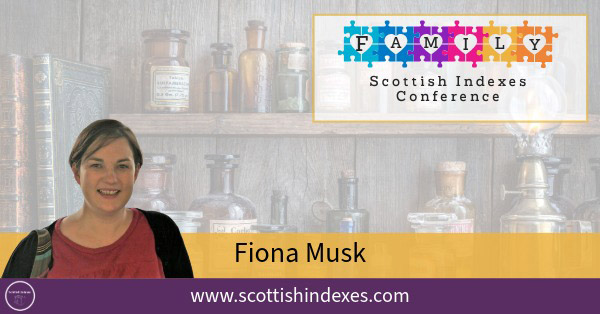
Fiona Musk, NHS Grampian Archivist
Website: www.nhsgrampian.org/archives
Fiona began working with archives in 2005, at Aberdeen City and Aberdeenshire Archives, and gained her masters in Archives and Records Management from the University of Dundee. She took over as NHS Grampian Archivist in 2015, following the retirement of Fiona Watson, who had been in post since the 1980s - big shoes to fill! Fiona is still learning new things every day, and really enjoys working with the extensive records held in the North East of Scotland. Fiona says that in her spare time, she is a glutton for punishment, being a season ticket holder at Aberdeen Football Club.
Presentations
22 November 2025
'The Doctor will see your ancestors now'
This presentation highlights the wide range of records created by hospitals across the North East of Scotland. The examples shared by Fiona from the archive help us to learn how to search and access these records. With some records dating to the mid-1700s, medical records can be a great resource when you are tracing your Scottish family tree. Of course, Fiona focuses on the area covered by the NHS (National Health Service) Grampian area, but even if your ancestors didn't live in this area, this presentation provides good examples of the types of records held by institutions in other parts of Scotland.
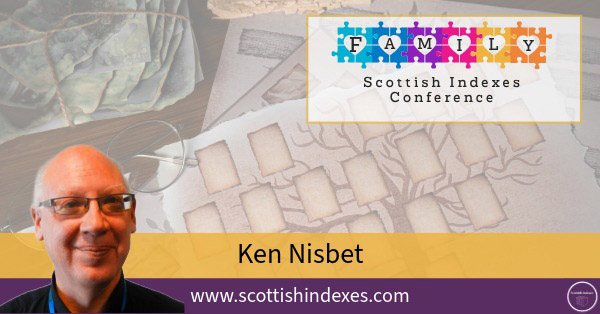
Ken Nisbet, Chair of the Scottish Association of Family History Societies (SAFHS)
Website: www.safhs.org.uk
Ken Nisbet was born and educated in Aberdeen. He worked in the travel industry for 43 years, with the last 32 years based in Edinburgh, before retiring in May 2024. In the 1990s, he obtained an honours degree from the Open University and holds a Diploma in Modern Social History Research.
Ken has a particular interest in military history, notably the Great War and 19th-century conflicts. He serves as Chairman of the South of Scotland Branch of the Western Front Association, visits battlefields and cemeteries from the Great War, volunteers for the Commonwealth War Graves Commission, and acts as a speaker and tour guide. Ken compiled the Nairnshire Roll of Honour for the Great War, published by the Scottish Genealogy Society, which also publishes his works on the use of R.C.E.s in family history research and a historical account of the 2nd Battalion 78th Foot (1804–1816).
Presentations
28 February 2026
'Researching British Prisoners of War, 1914-1919 and 1939-1946'
This talk examines the sources that can be used to research your relatives taken prisoner during the Great War and those taken prisoner by German and Japanese forces in the Second World War. The importance of the Hague and Geneva Conventions is explained and when this was contravened by both the Germans and Japanese in WWII.
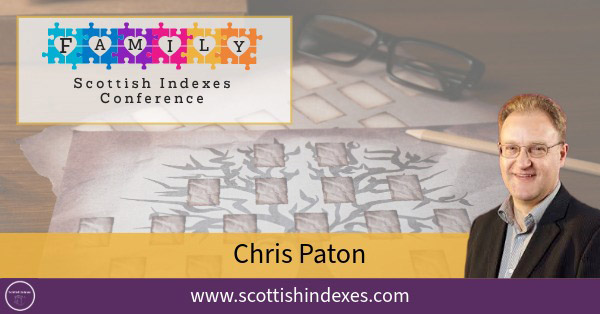
Chris Paton, Genealogist and Author at Scotland's Greatest Story
Website: scotlandsgreateststory
Webinar schedule: scottishgenes.blogspot.com/p/talks-diary.html
Northern Irish born Chris Paton is a genealogist and writer based in Ayrshire, where he runs the Scotland's Greatest Story research service at www.scotlandsgreateststory.co.uk. As well as contributing to the UK's best known family history magazines, he also writes for his own Scottish GENES news blog at www.scottishgenes.blogspot.com, and regularly gives talks to family history societies across the UK and worldwide. His publications include Tracing Your Belfast Ancestry, Tracing Your Irish Ancestors Through Land Records, Tracing Your Irish Family History on the Internet (2nd edition), Tracing Your Scottish Ancestry Through Church and State Records, Tracing Your Scottish Family History on the Internet, and Sharing Your Family History Online.
Presentations
31 January 2026
'Using DNA for Family History Research - A Beginner's Guide'
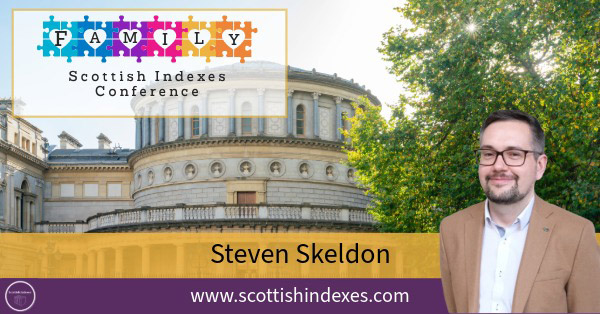
Steven Skeldon, manager of the Family History Service at the National Library of Ireland
Website: https://www.nli.ie/
Steven Skeldon is the manager of the Family History Service at the National Library of Ireland in Dublin. He is a qualified professional archivist with twelve years experience working in libraries and archives. His career started at the Registers of Scotland providing public access to land records, before moving to the Edinburgh University Library, and latterly to Cork City and County Archives. Steven is an advocate for the profession, a member of the Archives and Records Association, and chairperson of the Genealogy and Local Studies Group in the Library Association of Ireland.
Presentations
28 February 2026
'Family History Research at the National Library of Ireland'
An overview of the Family History Service at the National Library of Ireland (NLI), the tools available to search Irish ancestry, and the collections held at the NLI. This talk is primarily aimed at those getting started with Irish connections in their family tree. It is estimated 80,000 people emigrated from Ireland to Scotland in the years 1846 to 1851. The failure of the potato crop and impact of An Gorta Mór, the 'Great Hunger', had a lasting impact on Scotland and Ireland. Descendants of mixed Scottish and Irish populations are also identifiable across the world, with an estimated 5.3 million in the United States alone. The difference in source material and the websites available in Ireland will be investigated. The NLI is home to over 12 million items including books, original manuscripts, photographs, maps, drawings and other ephemera. The talk showcases these collections with a family history focus.
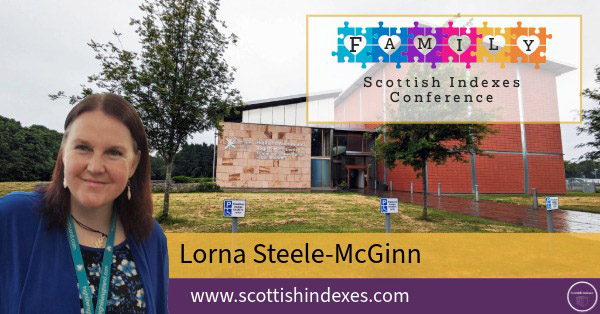
Lorna Steele-McGinn, Community Engagement Officer for the Highland Archive Service
Website: www.highlifehighland.com/archives-service
Lorna Steele-McGinn is the Community Engagement Officer for the Highland Archive Service, which has four archive centres across the Highlands of Scotland. Her work involves connecting a wide range of audiences to the diverse historic collections held in these centres through an extensive engagement programme which includes collaborations with schools, adult learning groups, HMP Inverness, care homes and numerous other organisations and individuals. 'Learn With Lorna', her online series of talks about the Highland Archive Service collections, has, to date, over 240 episodes which has led to a High Life Highland award for innovation.
Presentations
28 February 2026
'Patients and staff: stories of health and wellbeing'
Some of our ancestors may have worked in healthcare but all of our ancestors will have been on the receiving end of it. Join Highland Archive Service Community Engagement Officer Lorna Steele-McGinn to uncover where stories of health and wellbeing can be found in archives, and to hear about the Highlands' particular place in medical history.
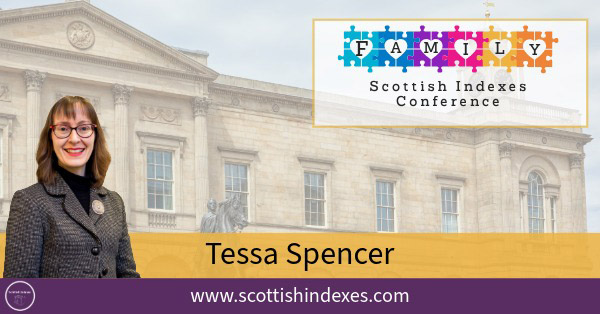
Tessa Spencer, Head of Learning at the National Records of Scotland
Website: www.nrscotland.gov.uk
Website: www.scotlandspeople.gov.uk
Tessa Spencer is a history graduate from the Universities of St. Andrews and Glasgow where she studied medieval history and the history of medicine respectively. She is a professional archivist and has worked at the National Records of Scotland for over 20 years in various roles.
In her current post as Head of Learning, Tessa is responsible for education in the archives for all ages and stages of learning from school pupils to university students to lifelong learners. She also facilitates access to the archives for higher education collaborations and partnerships.
Presentations
22 November 2025
'Introducing the Ordnance Survey Name Books and historical tax rolls on Scotland's People'
In this talk, Tessa Spencer provides an introduction to the Ordnance Survey Name Books and historical tax rolls. Tessa explains what these records are, how you can access and use them for research purposes, and highlights some interesting and surprising examples.
The Ordnance Survey (OS) Name Books provide information about every Scottish place name found on the Ordnance Survey six-inch to the mile (1:10,560) 1st edition maps. They comprise the earliest complete gazetteer of Scottish place names. They will be of particular interest to local and family historians, hoping to gain insight into the evolution of the Scottish landscape and of the places their ancestors lived and worked. They also provide insight into the sources of names, their meanings, different spellings of place names, archaeological finds and the individuals involved in collecting this information.
The historical tax rolls from the 17th to the early 19th centuries comprise 15 different types of taxation which list a large variety of people, from cottars to dukes, in each of Scotland's parishes and burghs. These include taxes on hearths (or fireplaces), windows, servants, carts and carriages and horses and dogs. The records are of particular interest to economic, family, local and social historians and researchers, providing a snapshot into people's lives.
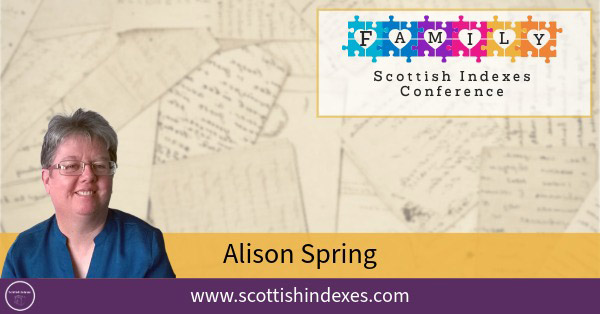
Alison Spring, Genealogist
Website: scotsancestors.weebly.com Blog: scotsancestors.blogspot.com
Alison Spring is a professional genealogist, speaker, and writer specialising in the records of Scotland. With over 40 years' experience of family history research, she has a Masters Degree in Family & Local History from the University of Dundee and is a member of the Register of Qualified Genealogists. Based near Glasgow, she is passionate about tracing your family tree on a budget, and blogs as the "Frugal Family Historian". She has also taught college and university genealogy courses and written for the UK's "Family Tree" magazine. She has delivered presentations for conferences, Legacy Webinars, RootsTech, and Family Tree Live, as well as family history societies in the UK and overseas.
Presentations
31 January 2026
'Dive Deeper Into Scottish Church Records'
This presentation explores the background and records of the various churches that existed in Scotland from the Reformation, covering Catholic, Presbyterian, and non-conformist church records. It also takes a look at some of the stories from around Scotland that can be uncovered using Presbyterian kirk session records.
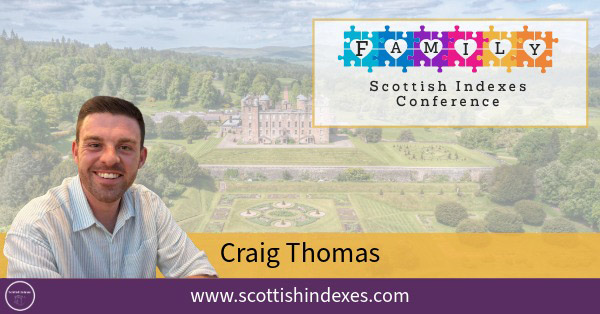
Dr Craig Thomas, Assistant Archivist at Buccleuch Living Heritage Trust
Website: blht.org
Dr Craig Thomas is Assistant Archivist at the Buccleuch Living Heritage Trust (BLHT). He is based at Bowhill House in the Scottish Borders and looks after the archives across the Buccleuch Estates in Scotland. Craig recently completed an AHRC funded Collaborative Doctoral Award between Newcastle University and BLHT. In addition to his role at BLHT, Craig is a Committee Member of the Scottish Association of Country House Archivists; Trustee of Wanlockhead Lead Mining Museum and Education Advisor to Historic Houses.
Presentations
22 November 2025
'5th Duke of Buccleuch: a forward thinking landed aristocrat'
The 5th Duke of Buccleuch (1806-1884) was one of Scotland's grandest landed aristocrats. Inheriting a largely agricultural set of estates with rudimentary industry, this individual transformed these estates into a diverse and modern business portfolio. Whilst this industrial transformation took place his paternalistic ethos was never forgotten. But could an individual of such eminence be wholly forward thinking? Through extensive use of the Buccleuch family archive including estate correspondence and assistance books, this presentation explores whether or not the 5th Duke of Buccleuch really was a forward thinking landed aristocrat.
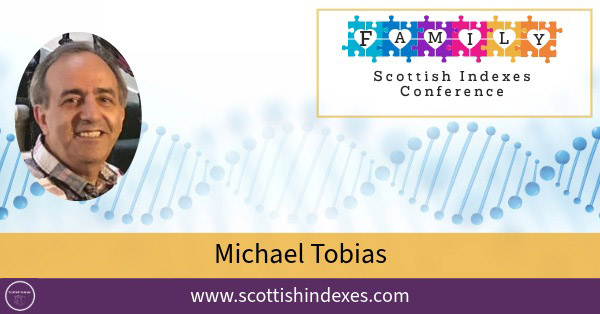
Michael Tobias, President of the Jewish Genealogical Society of Great Britain
Website: www.jgsgb.org.uk
Michael is a co-founder and Board Member of Jewish Records Indexing – Poland (1995-); President of the Jewish Genealogical Society of Great Britain (JGSGB 2022-); Honorary Research Fellow – Genealogical Studies, University of Strathclyde (2020-); Former Vice President, Programming of JewishGen, Inc (1995-2018). He was Database matching consultant to the International Commission on Holocaust Era Insurance Claims. Michael was awarded the International Association of Jewish Genealogical Societies Lifetime Achievement award in Washington in 2011. He was awarded the OBE for services to the Jewish Community in the Queen's New Year Honours List 2021.
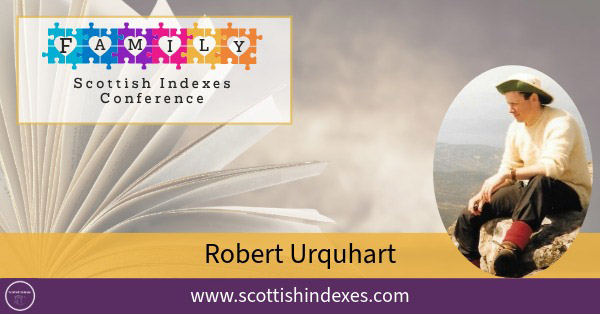
Robert Urquhart of Abbotshall Palaeography
Website: www.abbotshall.net
Robert Urquhart is a native of the Kingdom of Fife, and worked as an archivist for 35 years in local authority archives in the west of Scotland and in Scotland's national archives. During his career he also taught palaeography. He was the joint editor of 'The Hearth Tax for Ayrshire, 1691' (Ayrshire Federation of Historical Societies, 1998) and the original content writer and editor of the www.scottishhandwriting.com website. He now runs Abbotshall Palaeography, a transcription and teaching business, dealing mostly with 16th and 17th seventeenth century wills and testaments, marriage contracts and other court records. In his spare time, he is involved in research projects concerning parish boundaries and early modern Scottish communities in the Netherlands.
Presentations
22 November 2025
'An Arran Jigsaw: some records relating to people and places between the sixteenth and eighteenth centuries'
The island of Arran lies on the geographical boundary line between the Highlands and Lowlands of Scotland. For much of its history it sat between Gaelic-speaking parts of Argyll and Scots-speaking parts of Ayrshire and Galloway, and its culture and languages were influenced by both.
There are lots of sources of information about Arran (and for other parts of Scotland) covering the modern era: from the late-1700s onwards. Many of these, like census returns and statutory registers of births, marriages and deaths, are available online as digital copies, and they are often conveniently indexed by personal name and place-name, and structured in a way that makes it easy to identify and connect individual people.
By contrast, for the early-modern era (from the late-1500s to the mid-1700s) the sources of information are, in general, more difficult to get access to, harder to read and understand, and not often indexed. What is needed is a different approach from the straightforward searching of online indexes. A key to researching in this period is altruistic groundwork, carried out individually or in groups, to transcribe, summarise and index sets of records for the wider benefit of researchers.
For a long time Robin has been interested in the island of Arran, its people, landscape and ecology, between the 1500s and 1700s. He has been transcribing records for that era, some of which are in private hands and some of which are in public archives and libraries. The resulting work, compiled intermittently over more than thirty years, will be published in autumn by the Scottish Record Society. It will contain transcriptions and summaries of a selection of rentals, estate papers, wills and testaments, and other court records between the late 1500s and mid-1700s. It has been a bit like assembling a jigsaw, assembling a picture of everyday life on Arran before the agricultural improvements of the early-1800s and the migration and emigration associated with it.
The talk is not exclusively about Arran; it is more about the problems and possibilities of using early-modern records. There is a common misconception that once you get back beyond the late-1700s, you don't stand much chance of finding information about people, unless they were landowners, merchants or professionals. This is an overly-pessimistic assumption, as it is possible to compile information about ordinary folk, such as tenant farmers and their families. In particular, Robin would like to flag up commissary court records as an underutilised source for people and places in Scotland during the seventeenth and eighteenth centuries.
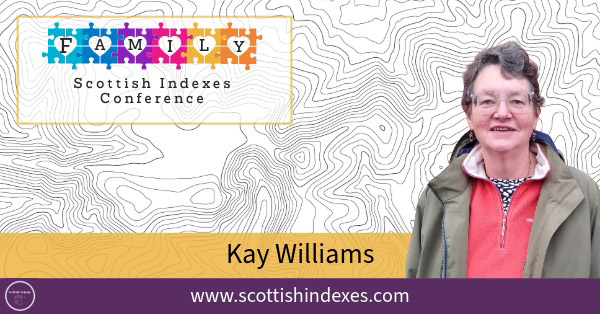
Dr Kay Williams, The Past and other Places
Website: thepastandotherplaces
Dr Kay Williams became interested in her family tree as a teenager through her grandparents who helpfully provided details. She first visited Edinburgh's New Register House in the days of paper indexes and transcribed information from the registers. As a student, Kay studied history and geography at St Andrews and researched housing as a postgraduate. Having returned to historical research in retirement, she very rarely posts a blog, but does provide pages of links and resources on her site.
Presentations
22 November 2025
'Reverend Russell and relief from patronage'
In early summer 1820 David Russell arrived in the Perthshire village of Errol with his family to take up his new post. He was inducted as minister of the Relief Church on 21st June 1820. In the 1820s Errol's villagers had a choice of three presbyterian churches: the Church of Scotland parish church, the Secession church and the Relief church. The following decades were to prove tumultuous for the ministers, their congregations, and their families.
Have you wondered why your ancestors joined a dissenting church? Why worshippers craved 'relief from patronage' and who the patron was? The Disruption of 1843 was an event staged in Edinburgh. What impact did that have at a more local level at a time when a parish was for civil and religious purposes?
This talk looks at social history from the bottom-up, the experiences of the people in Errol and in particular members of the Russell family. It will draw on a wide range of sources including maps, newspapers, church records, the statistical accounts and property records. Reference is made to Wikimedia's Churches of Scotland timeline diagram. A list of other sources are available on thepastandotherplaces.


